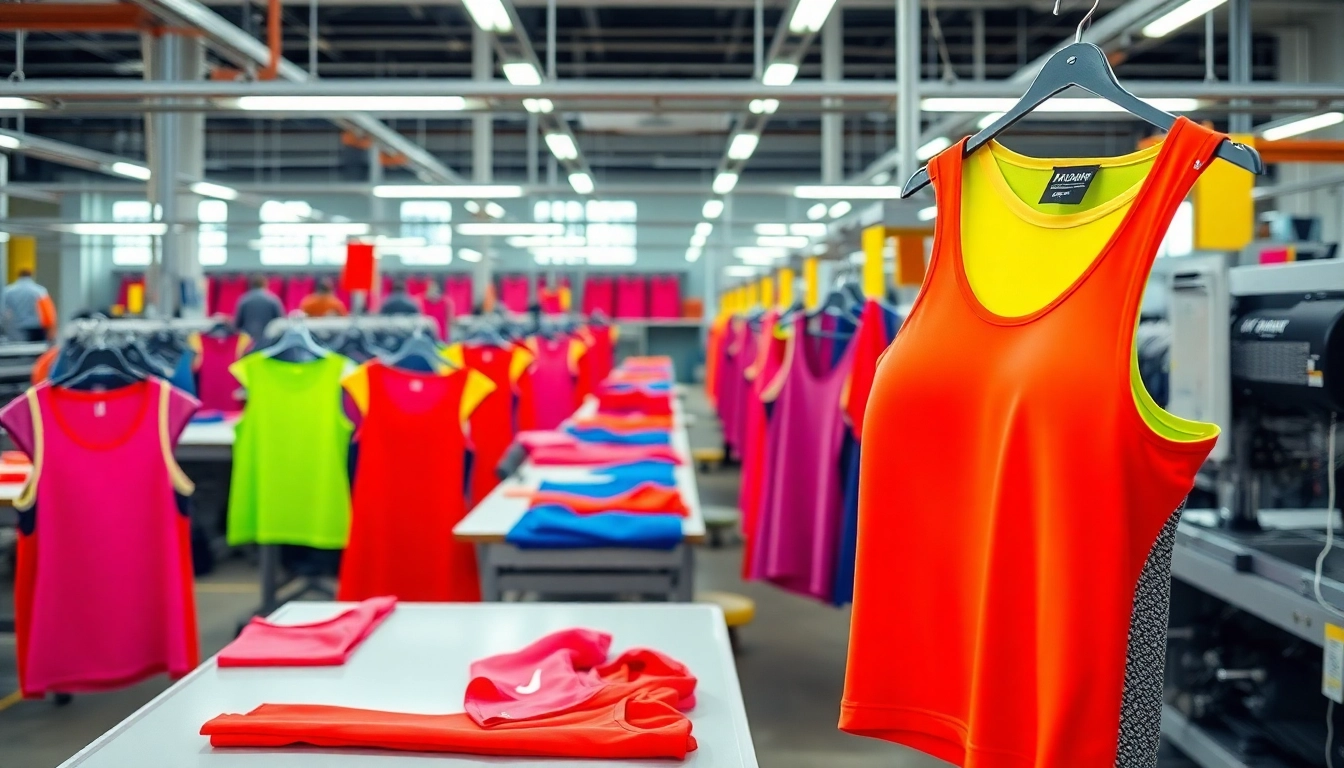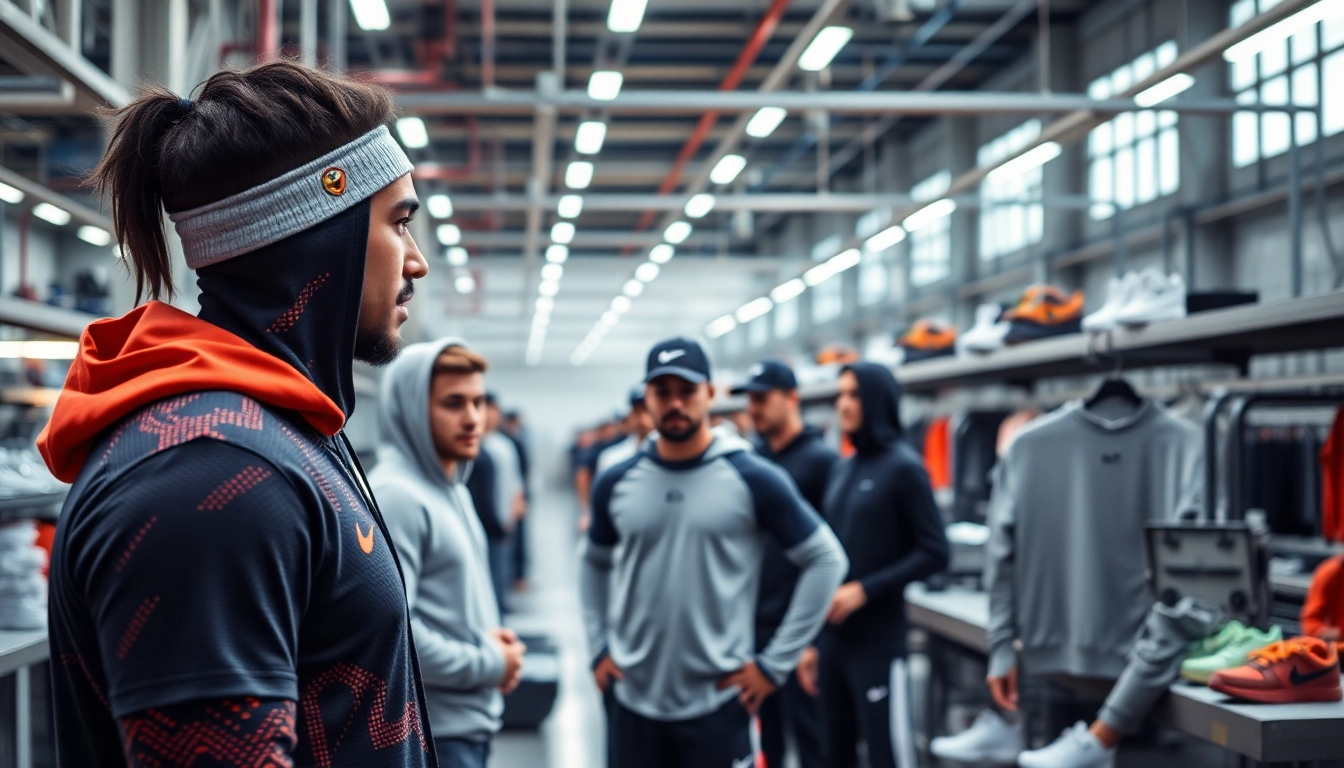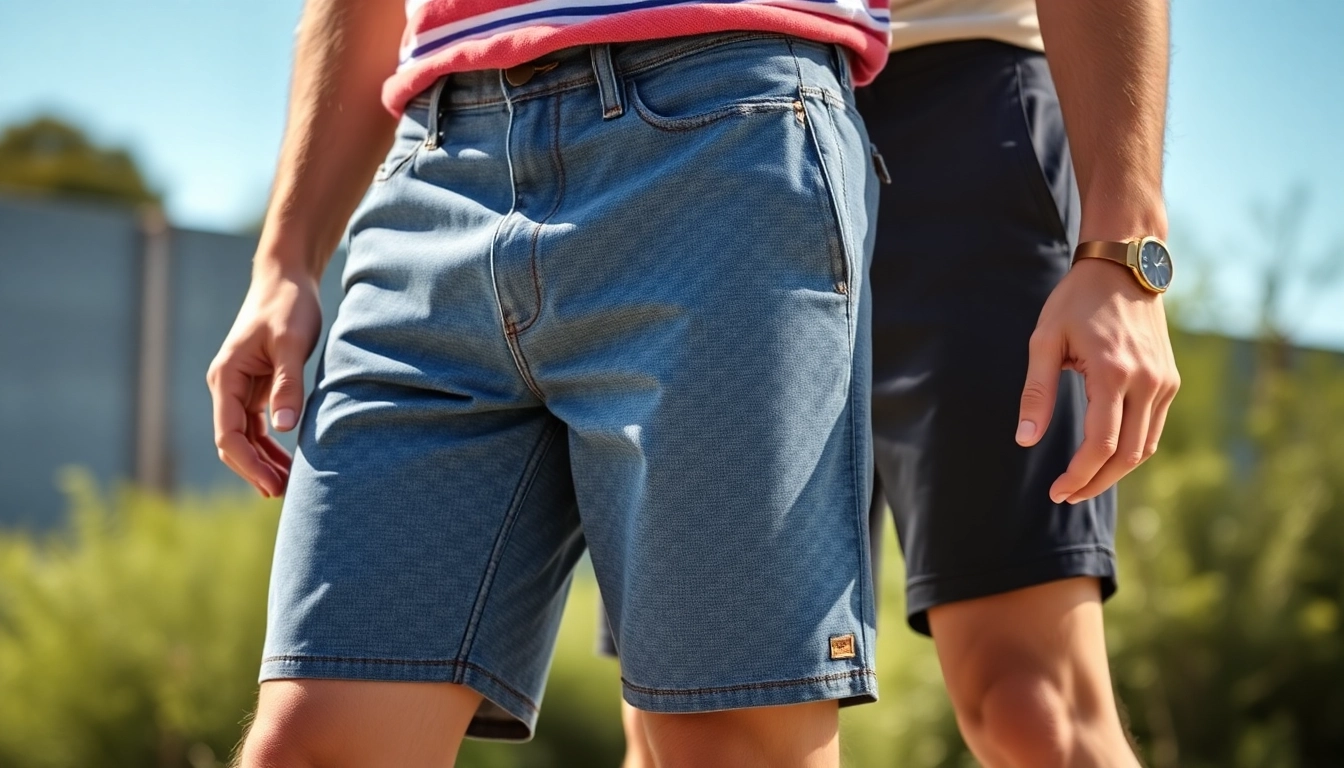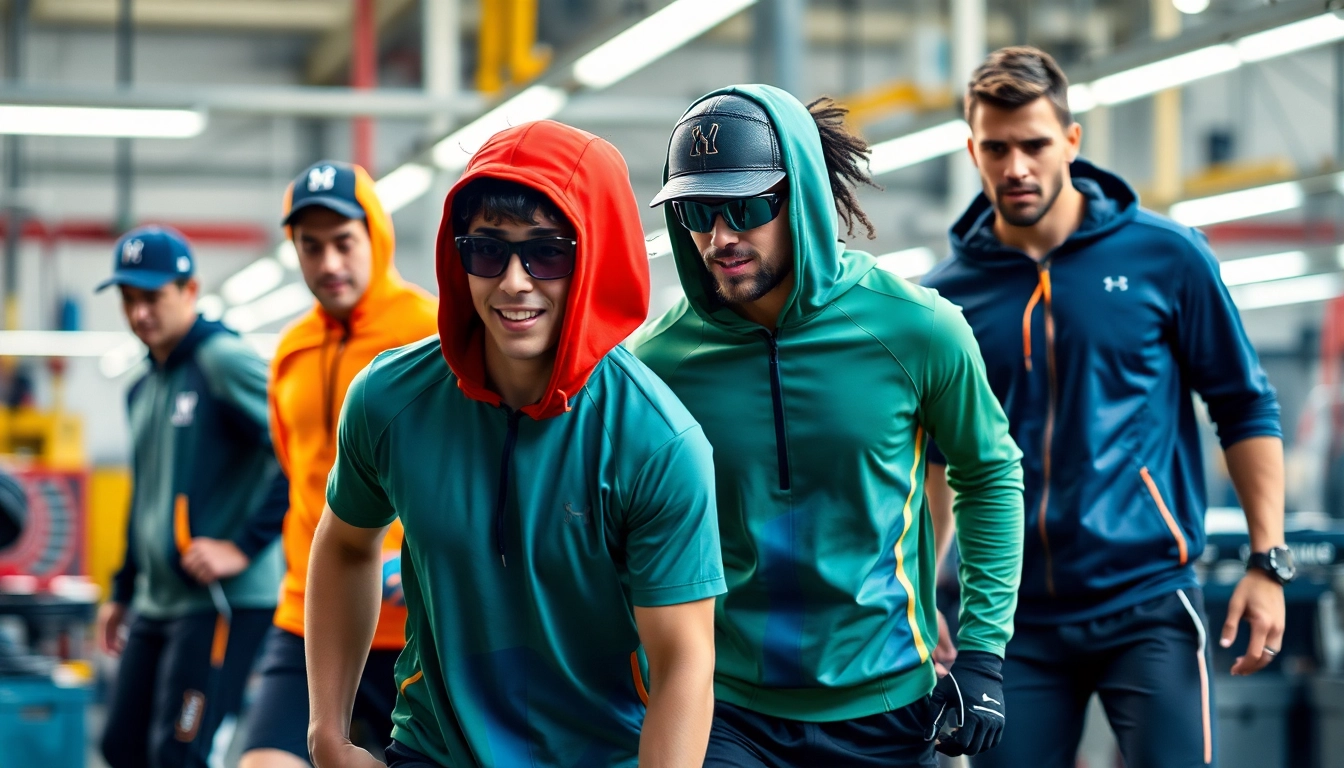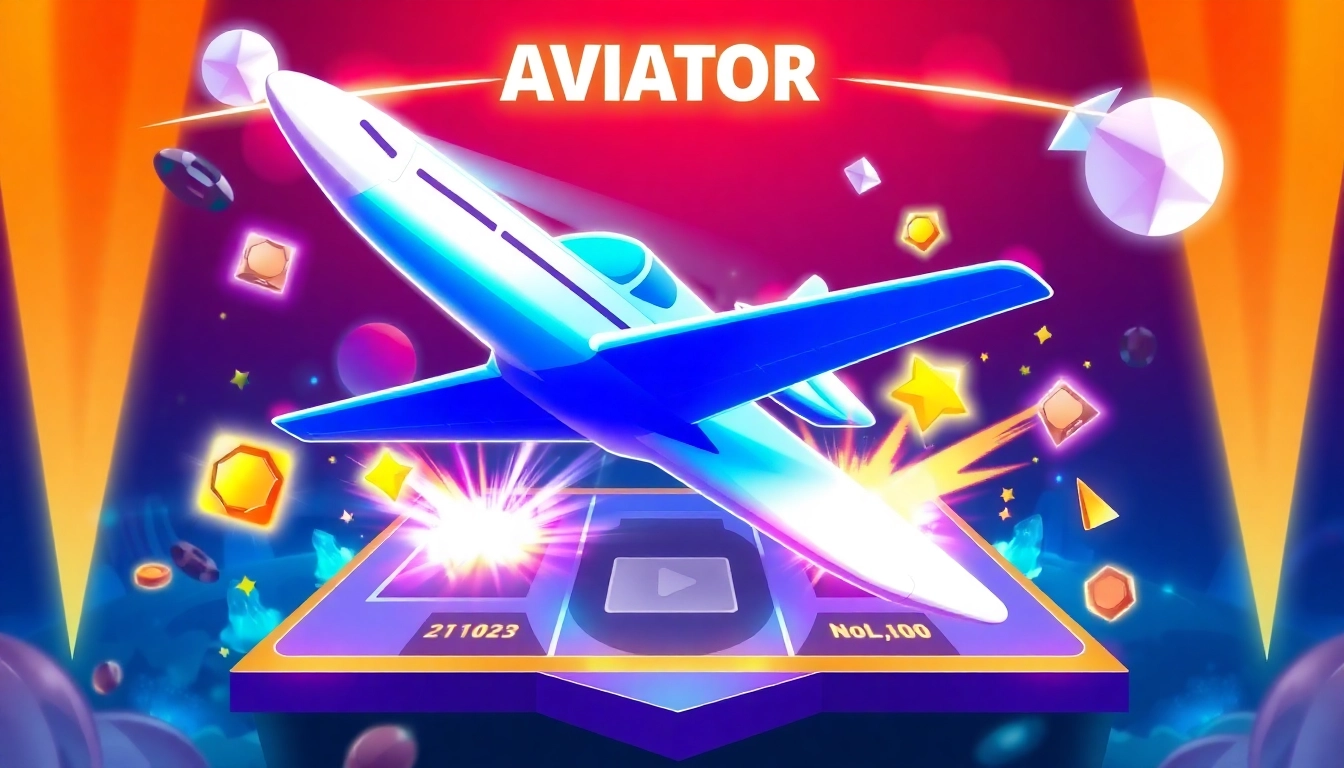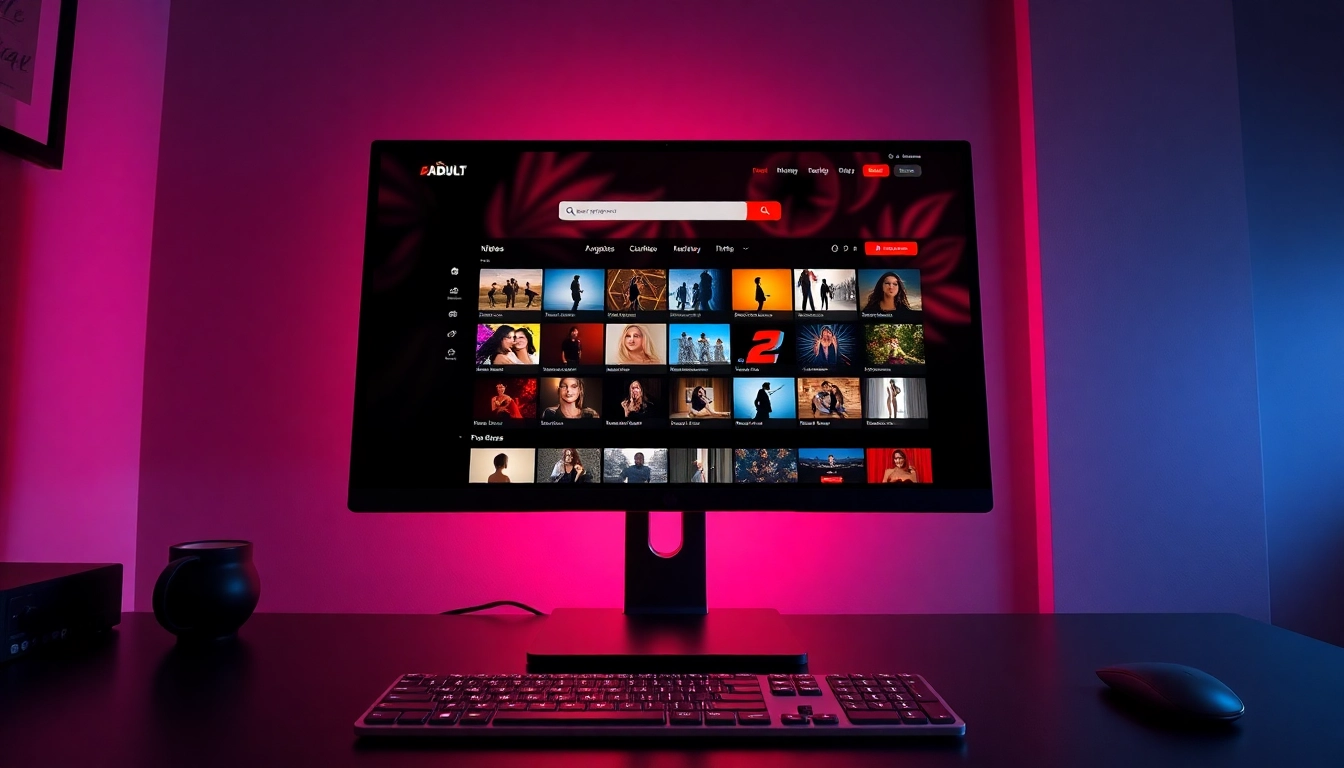In today’s highly competitive sports industry, establishing a strong brand presence requires more than just quality products; it demands innovative, reliable, and sustainable manufacturing solutions. As a pivotal component of sports branding and athlete performance, Sportswear Manufacturers play an essential role in delivering custom-designed apparel that meets the evolving demands of consumers, teams, and organizations worldwide. The proliferation of demand for personalized, high-performance, and eco-friendly sportswear has positioned leading manufacturers in Pakistan — like Extreme Sportswear — at the forefront of innovation, quality, and responsible manufacturing. This comprehensive analysis explores how top sportswear manufacturers differentiate themselves, the importance of customization and sustainability, and practical criteria for selecting a manufacturing partner aligned with your brand’s goals.
Understanding the Role of a Sportswear Manufacturer in Modern Branding
What Defines a Leading Sportswear Manufacturer
Today’s elite sportswear manufacturers are characterized not only by their ability to produce high-quality garments but also by their capacity to innovate seamlessly. Leading manufacturers integrate advanced technology—such as all-over sublimation printing, cutting-edge embroidery, and precision cut-and-sew techniques—to create products that stand out. They adopt strict quality control standards, employ sustainable practices, and offer flexible customization options. An industry leader like Extreme Sportswear, with over 3,000 satisfied brands, exemplifies these qualities by offering low minimum order quantities, swift turnaround times, and sweatshop-free facilities, ensuring trusted branding solutions accessible even for startups.
Services Offered by Top Industry Players
Top sportswear manufacturers provide a broad spectrum of services tailored to brand needs, including fabric development, design customization, cutting and sewing, in-house printing and embroidery, labeling, packaging, and timely logistics. For instance, services like all-over sublimation printing allow brands to produce vibrant, full-color designs that significantly enhance brand visibility. Moreover, private label manufacturing enables brands to diversify their product lines while maintaining consistency in quality. Advanced technology tools support these processes, ensuring product durability, optimal fit, and aesthetic appeal, crucial for athlete and consumer satisfaction.
Key Factors That Differentiates the Best in the Market
Several elements set the industry’s top performers apart, including:
- Customization Flexibility: Offering extensive fabric options, color combinations, and embellishments.
- Technological Innovation: Utilizing cutting-edge printing techniques and minimal waste technology.
- Sustainable Practices: Incorporating eco-friendly materials and waste reduction processes.
- Cost Efficiency: Providing competitive prices even with low MOQs, enabling brands to test new markets or SKUs.
- Reliability & Timelines: Ensuring on-time delivery through optimized logistics and experienced project management.
By focusing on these key areas, leading sportswear manufacturers foster trust and long-term partnerships with brands aiming to differentiate themselves through innovation and responsibility.
Comprehensive Customization for Sportswear Brands
Fabric Selection and Innovative Materials
Fabric quality is fundamental to performance and aesthetic appeal. Top manufacturers collaborate with brands to select from a wide array of materials—such as moisture-wicking polyesters, breathable meshes, and sustainable eco-friendly fabrics like recycled polyester or organic cotton. The ability to develop custom fabrics at a low MOQ (as low as 300 KGs per color) ensures brands can innovate without excessive inventory risks. Furthermore, incorporating technological enhancements such as UV protection, anti-odor, or thermal regulation fibers enhances product functionality, elevating performance gear.
Design Flexibility: Logos, Colors, and Embellishments
Design flexibility allows brands to craft unique identities. From multi-color logo placements to intricate embroidery or subtle embellishments, manufacturers equip brands with a versatile palette. Advanced digital tools enable visualization and real-time adjustments, ensuring the final product matches the creative intent. Custom labels, tags, and packaging further enhance brand integrity, allowing complete control over the consumer experience.
Advanced Printing and Embroidery Techniques
Modern printing technologies, such as full-allover sublimation and high-definition screen printing, facilitate vibrant and durable prints that withstand rigorous athletic activity and repeated washing. Custom embroidery—digitized and handcrafted—adds a premium touch, ideal for team logos, sponsors, or intricate design elements. In-house facilities ensure quick turnaround times and consistent quality, critical for promotional campaigns or event-specific apparel.
Sustainable Manufacturing Practices in Sportswear Production
Eco-Friendly Fabric Choices and Waste Reduction
Sustainability is no longer optional; it is an expectation. Leading manufacturers prioritize eco-friendly fabric options like recycled polyester, organic cotton, and biodegradable finishes. These choices reduce reliance on fossil fuels, minimize water and chemical usage, and ensure the end product aligns with environmental standards. Furthermore, modern production facilities utilize waste-reducing cutting techniques—like lasers—to optimize fabric utilization, minimizing scrap waste and conserving resources.
Certifications and Industry Standards for Sustainability
Manufacturers committed to sustainability invest in vital certifications such as OEKO-TEX, GRS (Global Recycled Standard), and ISO 14001. These certifications demonstrate compliance with stringent environmental and social standards, assuring brands and consumers of responsible sourcing and manufacturing.
Impact of Sustainability on Brand Reputation
Brands adopting sustainable practices enhance their market position by appealing to environmentally-conscious consumers—particularly among younger demographics. Transparent sourcing and eco-friendly production not only mitigate environmental impact but also reinforce brand integrity and customer loyalty, creating a sustainable loop of growth and responsibility.
Streamlining Production and Delivery for Competitive Markets
Cut & Sew Processes and Quality Control
Precision in cut-and-sew processes ensures consistency, fit, and fabric integrity. Manufacturers utilize advanced laser cutting and digital patterning to enhance accuracy. Rigorous quality control at each stage detects defects early, ensuring only premium products reach the client. The integration of in-house testing for colorfastness, shrinkage, and durability verifies compliance with international standards.
Minimum Order Quantities and Cost-Effectiveness
Industry leaders like Extreme Sportswear cater to startups and established brands by offering industry-low MOQs—starting at just 50 pieces per style or color—making customization accessible without excessive inventory costs. Economies of scale, coupled with optimized workflows, enable competitive pricing even for small batches, empowering brands to experiment and innovate.
Timely Shipment and Logistics Optimization
Timeliness depends on seamless logistics management. Leading manufacturers maintain a robust supply chain, with strategic warehousing and reliable courier partnerships ensuring rapid order fulfillment. Clear communication and transparent timelines help brands plan their launches and promotional activities effectively.
How to Choose the Right Sportswear Manufacturer for Your Brand
Assessing Capabilities and Technological Edge
Evaluate potential partners based on technological capabilities, including the range of printing techniques, fabric customization options, and automation levels in cutting/sewing. Visiting manufacturing facilities or requesting detailed samples and process documentation can help assess quality standards and innovation levels.
Customer Support and Customization Options
Effective communication, dedicated account managers, and flexible design assistance are vital. Choose manufacturers offering comprehensive support—from fabric selection to final packaging—to ensure your vision is fully realized.
Price Competitiveness and Contract Flexibility
Balance cost with service quality. Seek transparent pricing models, minimal hidden fees, and flexible contract terms, including short lead times, low MOQs, and scalable production runs. Carefully review their ability to accommodate future growth and seasonal demands.
